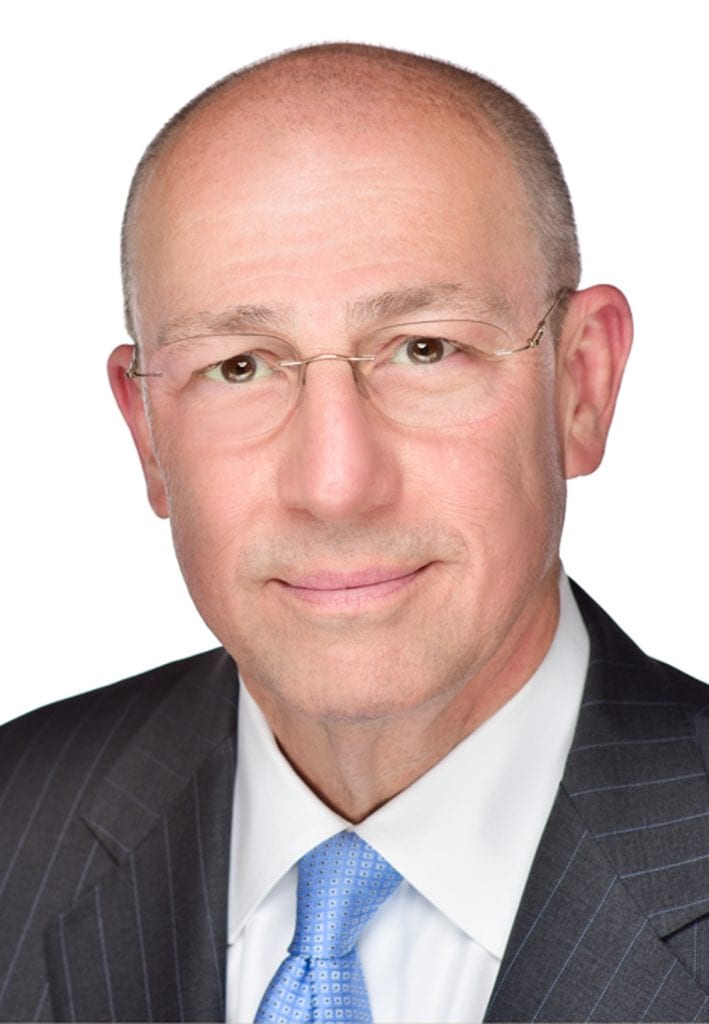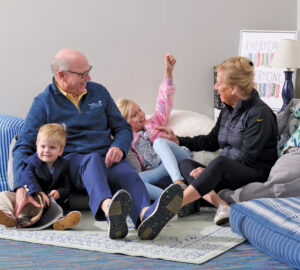In 2020 alone, an estimated 1.8 million Americans will receive a new cancer diagnosis, according to the American Cancer Society. For those who get the heartbreaking news, it often means the beginning of a long and difficult journey. Through groundbreaking research and treatment, the Alvin J. Siteman Cancer Center at Barnes-Jewish Hospital and Washington University School of Medicine ensures it is a road no one has to travel alone. The center is a leader in cancer treatment, research, prevention, education and community outreach, providing care to more than 75,000 patients annually.
Siteman was founded in 1999, and for two decades, it has been at the forefront of innovation in the fight against cancer. Director Dr. Timothy Eberlein says the most memorable part of his 20-year tenure has been the dedication of his colleagues. “Whether they’re physicians, researchers, nurses or other staff, everyone is committed to helping patients and creating new paradigms for treatment,” he notes. “This is not a job, it’s a passion, and I feel privileged to be part of
this organization.”

Among the many breakthroughs developed at the center are innovative technologies that can only be found at Siteman. One example is an injectable fluorescent dye that stains cancerous cells and makes it easier for doctors to determine where tumors are located. “Our surgeons wear special goggles, and in combination with the dye, they can tell where the edge of the cancer is and check if a satellite (a group of cancerous cells separate from the primary tumor) has formed,” Eberlein explains.
Other innovations pioneered at Siteman include immunotherapies, such as CAR T-cell therapy. The treatment uses a patient’s own T cells to stimulate the immune system to identify and destroy cancer cells. Researchers also have had success treating the recurrence of leukemia in children with an immunotherapy that uses NK cells. “Personalization is a very exciting area in cancer treatment,” Eberlein says. “We also have developed personalized vaccines based on individuals’ unique cancers. We sequence the mutation in the tumor and develop a treatment that stimulates the immune system to eradicate it.” The vaccines are used with breast cancer and have moved on to trials for other forms of the disease, such as brain, lung and pancreatic cancers.
These personalized treatments could lead to major improvements in patient outcomes. Since they are designed to specifically target tumors, they cause less harm to noncancerous tissue. “They kill cancer but are less toxic to the rest of the body,” Eberlein explains, adding that another major area of study is reducing the physical toll existing therapies can take. “We want treatments to be more effective while minimizing harm to patients.”
Many cancer survivors deal with serious, lasting side effects that majorly impact their health and quality of life. These include nerve damage called peripheral neuropathy and cardiovascular issues like cardiomyopathy, which makes it difficult for the heart to pump blood to the body and can lead to heart failure. “We now are focusing our expertise on identifying ways to reduce these kinds of side effects,” Eberlein says. “We want patients to have normal lives after they are treated.”

To continue doing its important work, he says Siteman cannot rely on government grants alone. He notes that outside funds are vital to the research process. To support researchers at the center, Bill and Amy Koman created the Cancer Frontier Fund for The Foundation for Barnes-Jewish Hospital. “New ideas and research often are not easy to fund through grants,” Eberlein explains. “The Cancer Frontier Fund is the mechanism by which we invest and develop new technology and treatments. It’s essential to keep Siteman on the cutting edge of cancer care.”
One of the major fundraising events that benefits Siteman Cancer Center is The Foundation for Barnes-Jewish Hospital’s Illumination Gala. Since 2007, the event has raised nearly $30 million to support research funds, including the Cancer Frontier Fund. This year, the gala will be held June 6 at The Ritz-Carlton, and the evening will feature a special appearance by the Grammy Award-winning country trio The Gatlin Brothers. “The community’s generosity through Illumination is the engine that drives our innovation and new technologies,” Eberlein says. “It allows us to keep improving how we care for cancer patients and to provide more hope.”
The Illumination Gala benefits cancer research at the Alvin J. Siteman Cancer Center at Barnes-Jewish Hospital and Washington University School of Medicine. The event is June 6 at The Ritz-Carlton. Pictured on the cover: Dr. Timothy and Kim Eberlein, event chairs Pat and Mark Burkhart and Michael and Noémi Neidorff. For sponsorship or ticket information, call 314.286.0602, email foundationforbjh@bjc.org or visit illuminationgala.org.
Cover design by Julie Streiler
Cover photo courtesy of The Foundation for Barnes-Jewish Hospital
Pictured at top: Bill and Amy Koman created the CaNcer Frontier Fund to support Siteman.
Photos courtesy of The Foundation for Barnes-Jewish Hospital








